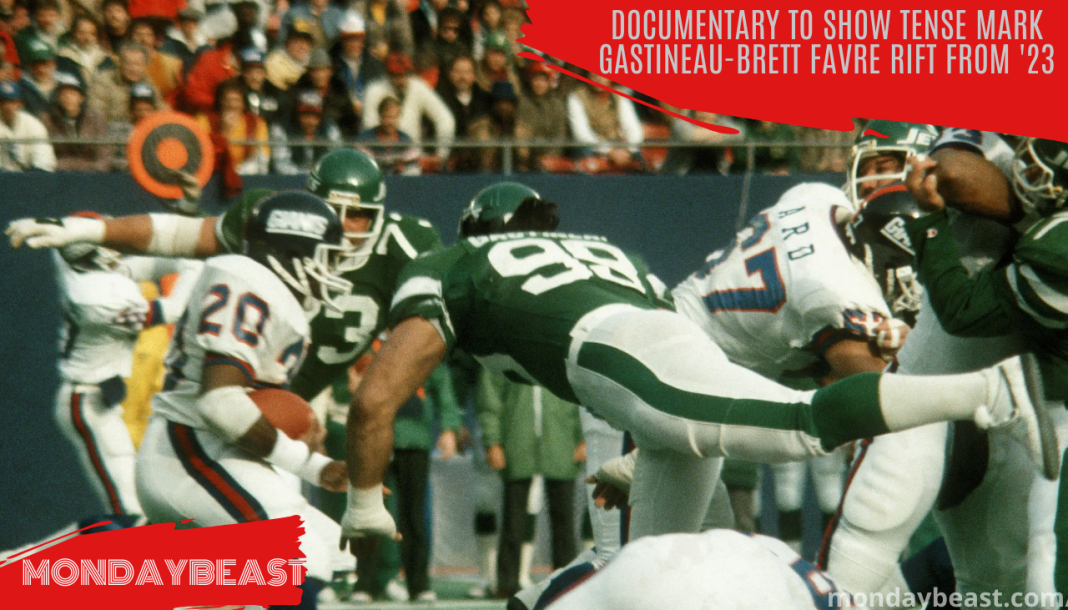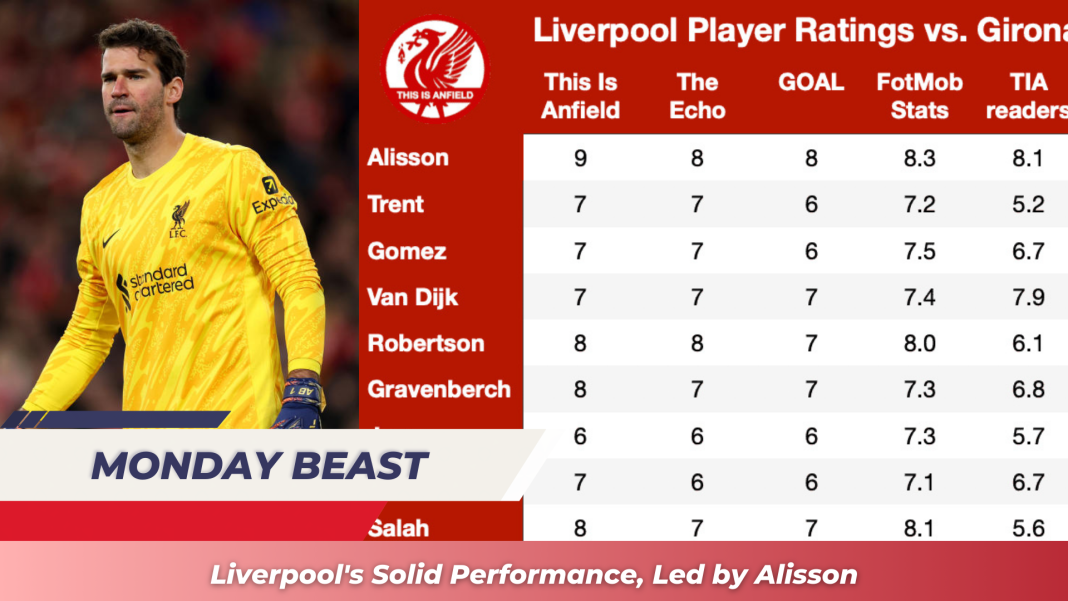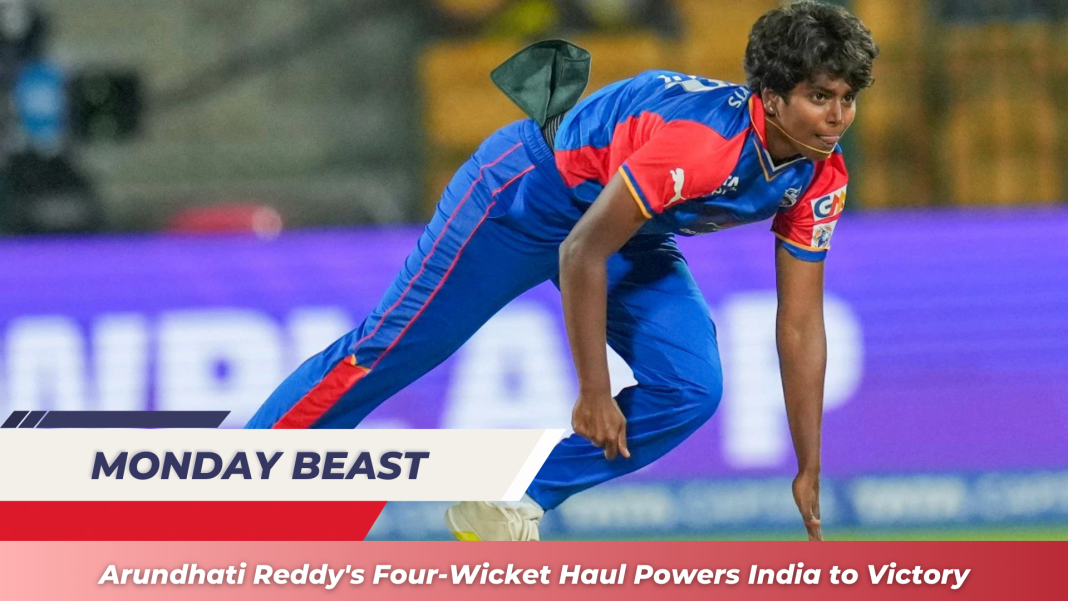In the world of sports, some rivalries never fade. The story of Mark Gastineau and Brett Favre showcases this truth vividly. Their tale unfolds like a drama, leaving fans pondering the emotional scars that linger long after the final whistle.
Imagine attending a memorabilia show, curious and eager to meet your childhood idols. You stroll through booths, admiring jerseys, signed footballs, and the legends attached to them. Suddenly, you spot Brett Favre, a Green Bay icon. Excitement swells, but for Mark Gastineau, that encounter was anything but exhilarating. It burst open old wounds, two decades in the making.
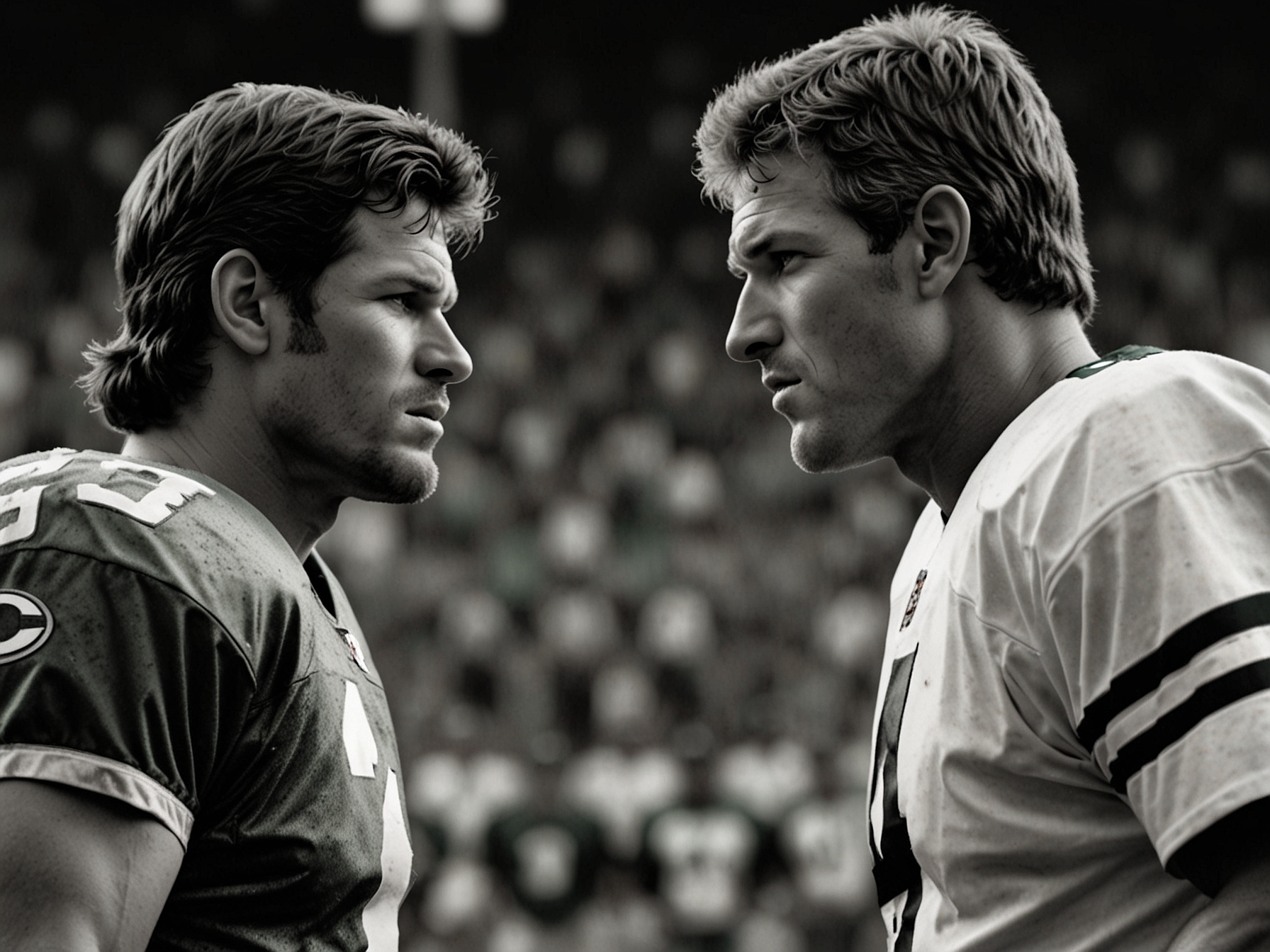
Gastineau, a star for the New York Jets, had carried anger in his heart for years. At the show, he confronted Favre, directly accusing him of taking a dive—a controversial sack that had shattered his dreams. This wasn’t just about a record; it embodied a quest for respect that time had not healed.
The tension escalated as Gastineau pointed fingers at Favre, his eyes blazing with emotion. “You hurt me!” he shouted. It was visceral, raw, and painfully human. Watching the video, you can’t help but feel the weight of Gastineau’s grievance. Why did he choose that moment to confront his long-time rival? The answer lies not only in the stats but in crushed aspirations.
The controversial sack occurred back in 2001. Favre had fallen dramatically, allowing Michael Strahan to break Gastineau’s long-standing record of 22 sacks. Many believe it was a calculated move, a friendly gesture gone awry. Gastineau witnessed the historic moment firsthand, a bitter pill to swallow. He congratulated Strahan then but held a secret resentment all these years.
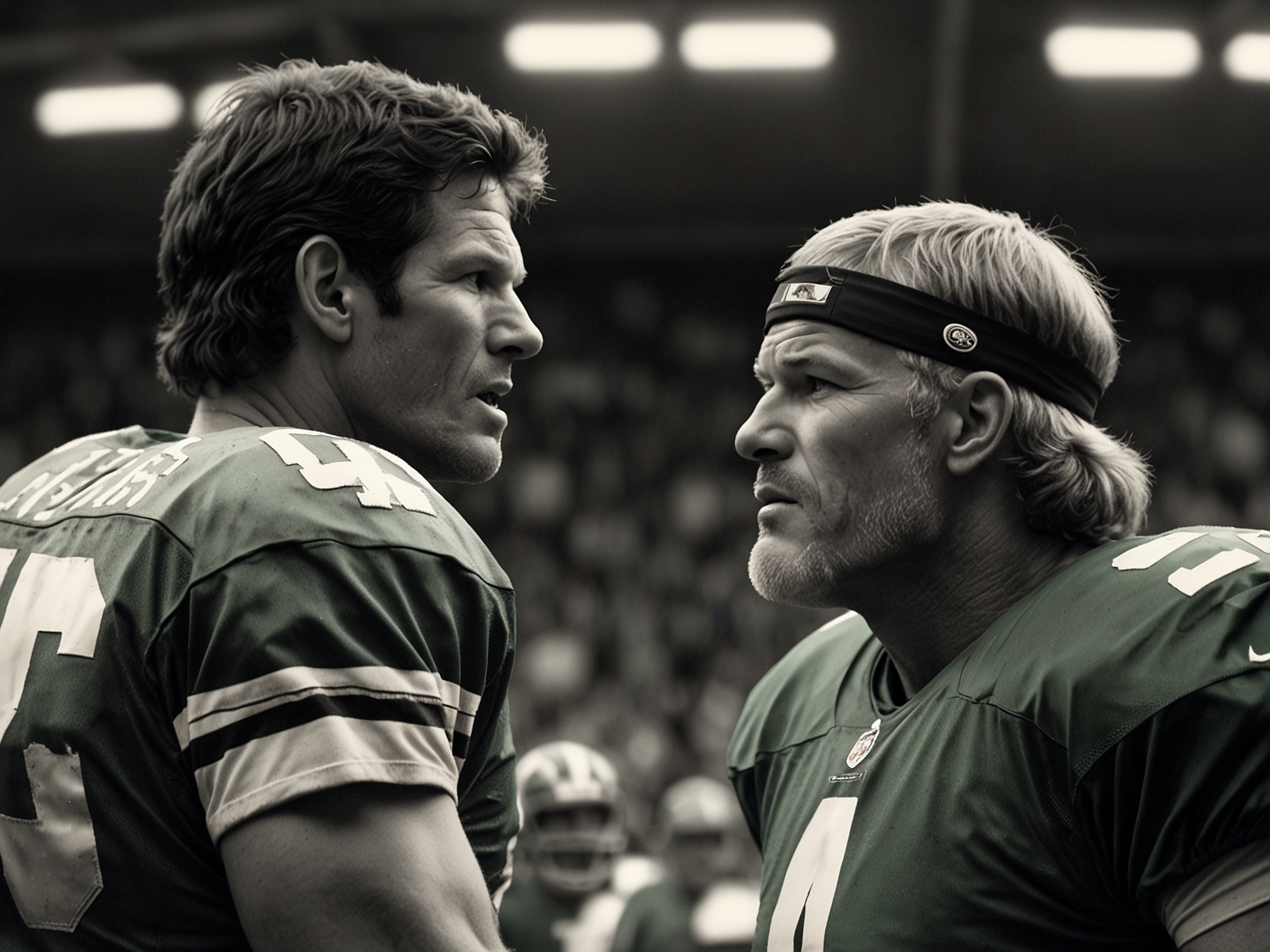
Strahan has since expressed his discomfort regarding the record too. “It felt diminished, as people questioned the legitimacy.” He wasn’t just a record-holder; he was a professional grappling with the ghosts of perceptions. The pressure of that honor, tinged with doubt, must have weighed heavily on him.
Through the years, emotions boiled under the surface. Gastineau articulated this pain publicly in a 2020 ESPN interview. “Brett Favre took a dive,” he declared, echoing sentiments fans and analysts discussed for years. The deeper issue then has always been about recognition for his achievements. It’s a perspective that resonates strongly in the competitive sports landscape.
Fast forward to the confrontation and the camera crews. The scene captured on film shows the unpredictable blend of nostalgia, frustration, and unresolved issues. Gastineau spoke his truth. People witnessing such moments may wonder—how can time fail to heal? Why do we cling to grudges long past their expiration dates?
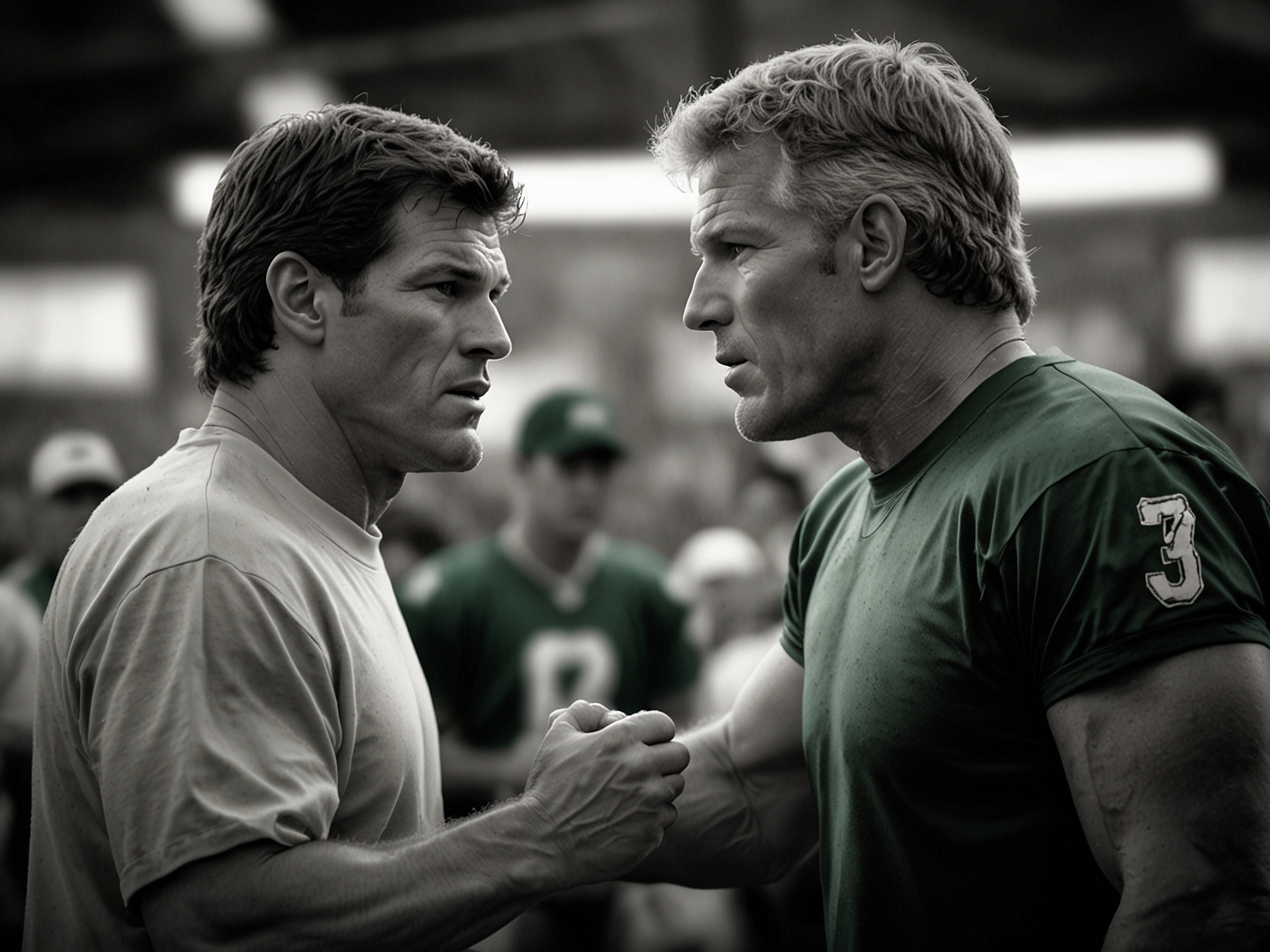
Even Favre, caught off guard, seemed surprised by the encounter. He later mentioned that there was no malice in his actions. Was it a misunderstanding or a display of rival emotions flaring? This exchange might have felt trivial to the casual observer, but for Gastineau, it was a cathartic release.
In reflection, both players’ legacies are intertwined in a game filled with triumphs and controversies. Gastineau’s impactful moments edged him closer to Hall of Fame expectations. Meanwhile, Favre’s career, marred with greatness, shifted the dynamics of a profession built on respect.
In social media discussions, fans often wax poetic about what achievement means to athletes. Some might dismiss the grudge as childish, while others appreciate the depth of emotion behind it. In many ways, these are not just players—they’re complex individuals shaped by transformative experiences.
Jo Ann Gastineau later returned to smooth things over with Favre. Her attempt shows the power of understanding in resolving conflicts, even in sports. How often do we overlook the human aspect while scrutinizing athletes? The moments we see on television barely scratch the surface of the pressures these players face.
As audiences, we can learn something vital from this saga. Emotions in sports run deep, and records do not always define a player’s worth. This saga encourages us to look beyond just statistics and delve into the spirit of competition.
Ultimately, the story of Gastineau and Favre illustrates a pivotal lesson: unresolved feelings can reverberate for years. As fans, we can empathize and reflect on our own grudges. Not everything is as black and white as it seems in the championship arena. Every player has a unique journey, filled with trials and triumphs.
In closing, we can hope that this newfound dialogue instigated by their confrontation leads to a broader understanding of sportsmanship and camaraderie. Perhaps the real victory lies not in breaking records, but in mending old wounds and fostering respect long overdue.

